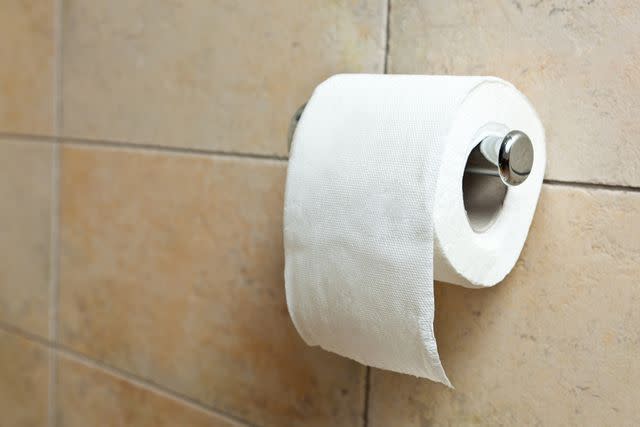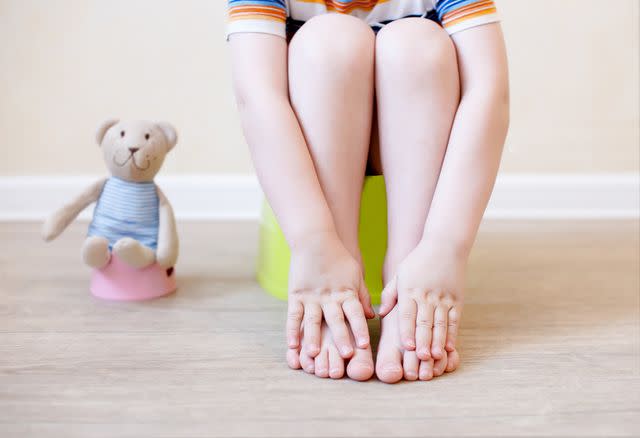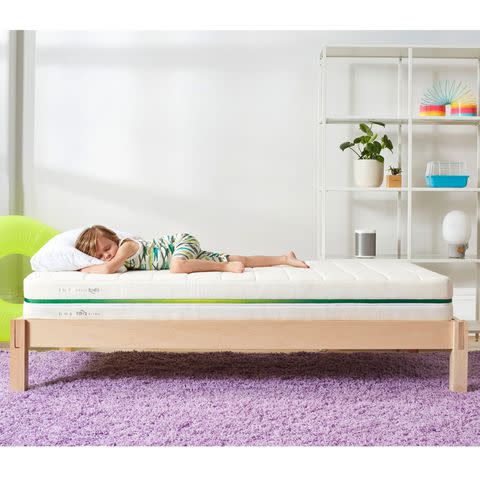7 Solutions for Stopping Bedwetting Permanently
Worried about your child wetting the bed? Here are 7 tips for how to stop bedwetting permanently.
Bedwetting can be embarrassing among kids, but it's very common. According to the American Academy of Pediatrics (AAP), nocturnal enuresis (the medical term for nighttime bedwetting after age 5) affects about 20% of kids at age 5 and around 10% at age 7. Teens experience it at a rate of 1-3%.
Bedwetting tends to run in families and is more common among boys than girls, occurring two to three times more often in those assigned male at birth. Although most children eventually outgrow this phase, it can be frustrating to experience.
Read on for seven ideas on how to stop bedwetting permanently.
Related: How Do I Get My Child's Bedwetting Under Control?
Banish the Blame

Getting angry with your little one and punishing them for wetting the bed will only add pressure to stay dry—and will make the problem worse. "It's difficult to stop a child from wetting the bed, and you shouldn't worry about it unless they're embarrassed and ask you for help," says Scott J. Goldstein, MD, an instructor of clinical pediatrics at Northwestern University School of Medicine in Chicago.
Plus, punishment can cause long-term harm. Studies have found that kids who are punished for wetting the bed are more likely to develop depression and reduced quality of life.
So, don't make a big deal out of it; offer some comfort instead. "Often, when parents don't talk about bedwetting, children think they are the only ones going through it," points out Howard J. Bennett, MD, a pediatrician in Washington, D.C., and author of the American Academy of Pediatrics' Waking Up Dry. "Reassure your child that they are not alone and that bedwetting is actually very normal at their age."
Talk to a Health Care Provider

Tell a health care provider about bedwetting so they can track your child's progress and offer suggestions for handling the situation. If your child is older than 5, or if the bedwetting starts abruptly, discuss if there is a reason why it's occurring, suggests Mark Wolraich, MD, director of the Child Study Center at the University of Oklahoma Health Sciences Center.
According to the National Institute of Diabetes and Digestive and Kidney Diseases, causes of bedwetting sometimes include the following:
Slow physical development
Family history
Making too much urine
Sleep disorders
Urinary tract infections (UTIs)
Constipation
Keep in mind, though, that there isn't a physical reason for bedwetting in many cases. It's just a delay in the development of nighttime bladder control.
Encourage Bathroom Trips Before Bed

Make sure your child goes to the bathroom before their bedtime, but also try carrying them to the bathroom again right before you go to bed. "When your child empties their bladder, there's less of a chance they'll have to urinate during the night," explains Dr. Goldstein.
This technique won't "cure" bedwetting, so to speak, but it can be an effective way to keep the bed dry through the night. Some pediatricians also suggest limiting your child's intake of fluids a few hours before bedtime.
Check for Constipation

Constipation is a common cause of bladder problems. Researchers have found among kids who wet the bed, as many as 70% have constipation.
When the rectum, located just behind the bladder, is filled with large or hard poop, there is more pressure on the bladder. This causes bladder instability, which, in turn, can lead to nighttime (or even daytime) accidents, explains Dr. Bennett.
He suggests that parents get "back into the poop loop." If you notice that your child doesn't have a daily bowel movement or if their stool is typically hard, increase their fluid and fiber intake. Apple juice, fruits, vegetables, and whole grains are all good options to help ease constipation and get the system working better again.
Consider Specific Medications

Medication is also an option. However, it's more commonly used to treat daytime wetting. According to the National Kidney Foundation, medications used to treat bedwetting in kids include:
Desmopressin Acetate (DDAVP)
Imipramine
Anticholinergics
These medications work in different ways. Some control urine production, increase bladder capacity, or stop bladder contractions, while others affect a child's sleep-wake cycle.
Like all medications, bedwetting drugs come with potential side effects. For instance, desmopressin, which reduces urine production, can cause headaches, facial flushing, nausea, and, in rare cases, severe water retention.
Some medicine tends to control symptoms rather than cure bedwetting. "The second you stop the medication, the bedwetting might start again," says Dr. Bennett. Discuss with a health care provider the types of prescription medication choices that are available.
Related: 8 Ways Parents Can Avoid Common Medication Mistakes
Purchase a Moisture Alarm

A moisture alarm wakes your child the second they wet the bed. The interruption in sleep can condition the brain to control the bladder better and help prevent accidents.
This is a first-line treatment for bedwetting, and studies have found it is effective—helping stop bedwetting permanently 50% of the time. This method tends to work best when the children are ready to be dry, as it requires them to cooperate with the treatment.
Dr. Bennett suggests the Malem alarm and the Rodger wireless alarm system, which can be purchased on Amazon.com.
Related: How to Make Nighttime Potty Training Easier
Invest in a Waterproof Mattress

If moisture alarms and medication aren't for you, you can try simpler measures: Make sure the bed has a waterproof mattress cover or pad and pillowcases, and stock up on Pull-Ups. Lay fresh pajamas by your little one's bed for a quick change in the middle of the night.
If your child sleeps through the night in a wet bed, you might want to ask them to help change the sheets in the morning. Even though your child isn't wetting the bed on purpose, they're still aware of their accidents when they wake up. Helping change the sheets can make them feel like they are part of the solution rather than the problem.
Then relax and be patient: This phase won't last forever. In almost all cases, children outgrow bedwetting.
For more Parents news, make sure to sign up for our newsletter!
Read the original article on Parents.

